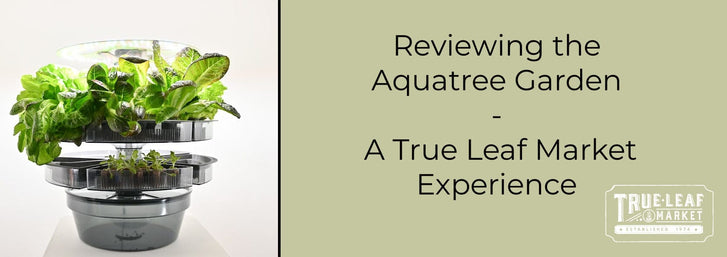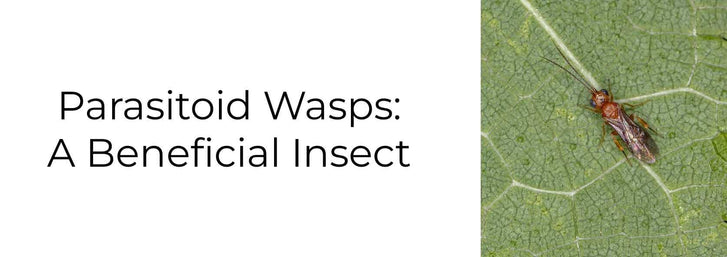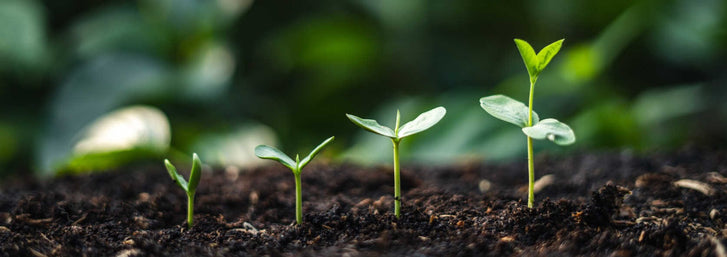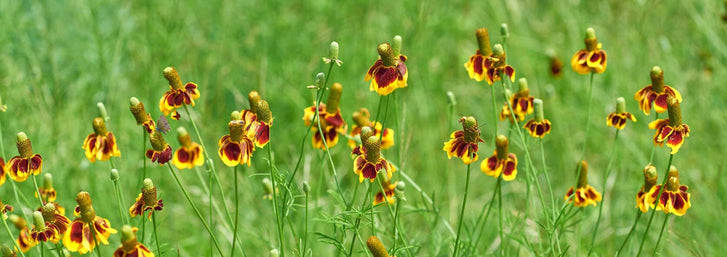
Jordan Freytag

Now that the growing season is underway, an abundance of life begins to spring up in our garden: seedlings take root and begin branching out, showing signs of their future production. But with new growth and life, comes the chance of pests finding their way into your garden. Some folks never have to deal with an infestation of pests—and hopefully you won’t either. When invasive species of insects happen to make their way into a garden, some folks rid them by spraying with pesticides. But we believe avoiding harmful pests by taking preventative measures and treating them using safe and natural methods is the best way to keep from harming your ground or your garden crop.
The first line of defense to prevent insects from the beginning is to build and maintain a healthy soil. Healthy soil will provide your plants with all the oxygen and nutrients they need so they will better withstand the possible attack from pests. If you are rotating your crops every year, providing mulch and fertilizer, and even growing cover crops every couple of years, your soil will be in prime health and you will grow tenacious plants as a result.
Even though pests can be very harmful, the healthiest gardens have bugs, and it can be a very good thing! The best advice we’ve heard is to fight bad bugs with good bugs. What I mean is to allow beneficial insects to populate your garden because they will not only ward off the harmful insects but promote healthy growth of current garden plants. The trick is to grow certain plants and flowers alongside your garden vegetables to attract these helpful bugs into your garden and to scare away harmful ones.

These “protective plants” also known as “companion plants” also help repel pests in their own right. For example, because of their strong fragrances, plants in the mint family repel mosquitoes rather than attracting an insect that preys on pests. Here is a list of helpful garden plants and flowers and descriptions on how they can benefit your garden:
- Bronze Fennel – attracts minute pirate bugs which prey on spider mites and aphids. Wards off aphids, slugs, and snails. Bronze Fennel is invasive and should only be planted in containers and placed around your garden.
- Mint – attracts damsel bugs which prey on caterpillars, mites, potato beetles, cabbage worms. Mint plants are very invasive and should only be planted in containers like Fennel. Remove from garden before plants flower!
- Dill – attracts lady bugs which prey on aphids and white flies and wards off squash bugs, spider mites, cabbage loopers, and tomato hornworms. Dill is invasive in wet climates, so treat like mint in those regions. In dry climates, dill is more easily controlled.
- Marigolds – wards off mosquitos and aphids and attracts bees and wasps, which prey on caterpillars and aphids. Plant right next to tomatoes and peppers!
- Coriander (cilantro) – attracts green lacewings (also attracted by dill), which prey on aphids, whiteflies, and mealybugs. Establish a patch somewhere outside your garden yet nearby and keep controlled.
- Zinnia – Will attract Soldier Beetles, which will prey on grasshoppers, one of the most damaging pests. Attracts bees and other vital pollinators.
Although bees don’t prey on any insect, they are vital to your garden and the world at large. Vegetables that need bees to pollinate are broccoli, cabbage, watermelons, squash, apples, and cauliflower—just to name a few. Just by having flowers around and in your garden, like marigolds, will make bees feel welcome, prompting them to work for you and your garden!
Take note that if the pest infestation isn’t too bad, some growers will tolerate it, as long as it won’t affect the outcome of the fruit. But if you feel the problem needs immediate attention, there are a few natural methods of treating pests you can try. Placing orange, lime, lemon, and even banana peels in the soil will help remove some harmful ants and aphids. Placing a jar filled with apple cider vinegar near affected areas has been known to ward off aphids.
But one of the most effective natural remedies is to dry a hot pepper and put its ground up flakes into a water and soap mixture. Spray the mixture around the plant and this should ward off all insects and rodents. However, understand that this will ward off beneficial insects as well. We recommend using one of the hottest peppers in the world, the Bhut Jolokia Ghost Pepper! When trying this method be very careful to not get any dried pepper near your eyes.

All in all, you may experience pest problems this year or you may not. The point is to understand how a healthy garden depends on creating a suitable micro-environment with plant diversity and good garden practices. It may take a season to get your garden to the state you want it, but part of the joy in gardening is being rewarded for your patience.
Leave a comment
Your email address will not be published. Required fields are marked *
1 comments
Chukwuemeka Dominic
Sir, do you do oil-palm and cocoa-nut plants? If you do please, can we have the pictures of the species and types; posiblely its full catalogue with prices. We’re meeting more regularly to generate fund for our orders from your company. Another confussion we’re facing is the means and ways by which we might join Trueleafmarket.com affiliates. Please, we expect to hear from you immediately if possible. Thanks.
Further Reading

Reviewing the Aquatree Garden: A True Leaf Market Experience
The AquaTree Garden is an innovative growing experience! This nifty appliance allows you to grow leafy greens, microgreens, herbs, large sprouts, and vegetable starts (like tomatoes) all at once! When it comes to indoor gardening, there is no question ...

Ashleigh Smith
2024-04-225 min read1
Parasitoid Wasps: A Beneficial Insect in the Garden
Written By Lara Wadsworth There are estimated to be around one million different species of parasitic wasps worldwide. In fact, most wasps are parasitic, which means they live on or in a host at the host's expense. For common garden pests like aphids, ...

Ashleigh Smith
2024-04-226 min read0
Succession Planting: The Key to a Continual Harvest
Do you find yourself harvesting large amounts of any given vegetable from your garden all at once? There is a solution! The practice of succession planting, or planting in segments over a period of time, allows you to harvest root vegetables, leafy gre...

Ashleigh Smith
2024-04-223 min read1
10 Natives of the Southwest USA for Pest Control
Written By Lara Wadsworth The Southwestern United States is a region incredibly unique to the rest of the country. The hot, dry weather can be challenging for plants and animals to thrive without additional help. That is why gardening with natives can ...

Ashleigh Smith
2024-04-157 min read0



